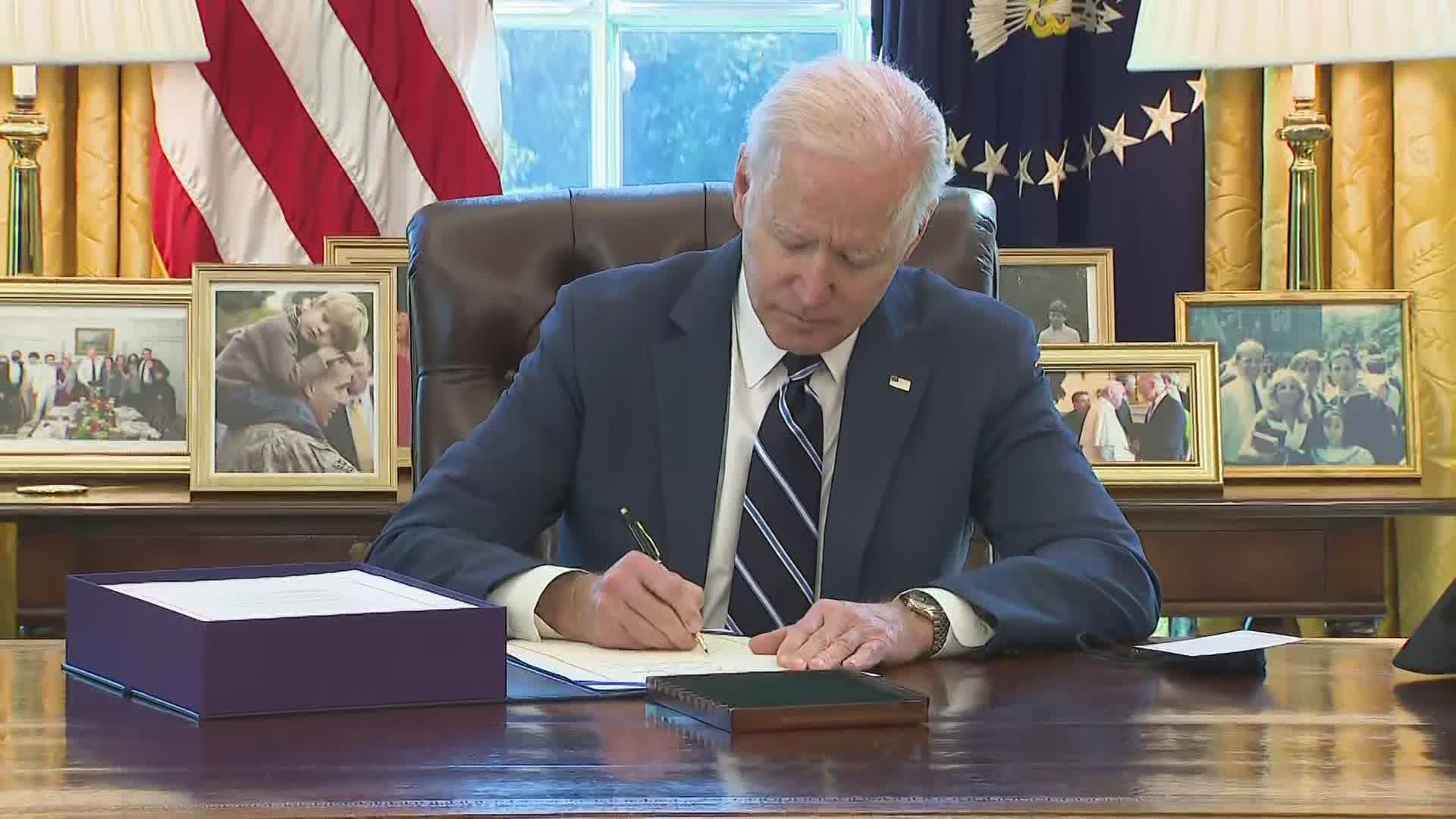President Joe Biden on Thursday signed into law the new COVID relief package that Congress passed this week, includes another round of direct payment stimulus checks to most Americans. When the payments go out, the amount people receive will be based on several factors.
The legislation provides a direct payment of $1,400 for a single taxpayer, or $2,800 for a married couple that files jointly, plus $1,400 per dependent. Individuals earning up to $75,000 would get the full amount, as would married couples with incomes up to $150,000.
The size of the check shrinks for those making slightly more, with a hard cut-off at $80,000 for individuals and $160,000 for married couples.
Most Americans will be getting the full amount. The median household income was $68,703 in 2019, according to the U.S. Census Bureau. President Joe Biden said payments would start going out this month.
This calculator will let you input how much you made and how many dependents you have to determine what you'll be getting back from the government.
When will the third stimulus check be sent?
The goal of Democrats was to pass the bill by this Sunday, March 14. That's when extra unemployment assistance and other pandemic aid expires.
With Biden signing the plan on Thursday, Democrats have met that goal.
White House Press Secretary Jen Psaki announced shortly after Biden signed the bill that the IRS and Treasury Department are working hard to get payments out and some people will see direct deposits hit their bank accounts as early as this weekend.
"This is of course just the first wave, but some people in he country will start seeing those direct deposits in their bank accounts this weekend and payments to eligible Americans will continue throughout the course of the next several weeks," Psaki explained.
During the first round of stimulus checks in April 2020, it took about two weeks for the federal government to start distributing the money. It took around one week for the second round of checks, worth $600, in early January partly because the infrastructure from the first stimulus was in place.
One factor that could complicate things is that this is also tax season. The IRS will be trying to send out stimulus checks while also processing incoming tax returns and calculating refunds.
Travis Pittman and the Associated Press contributed to this report.

